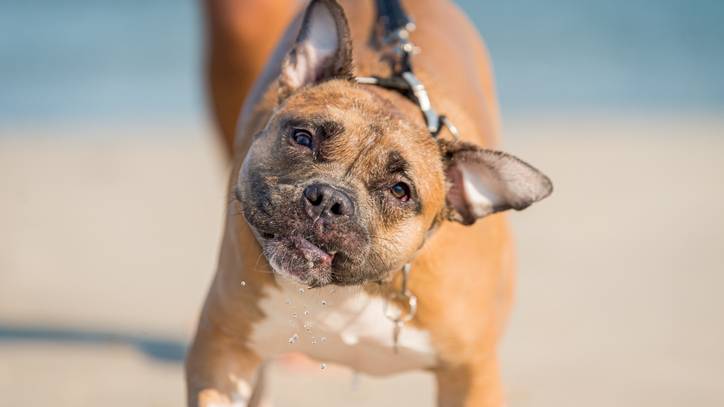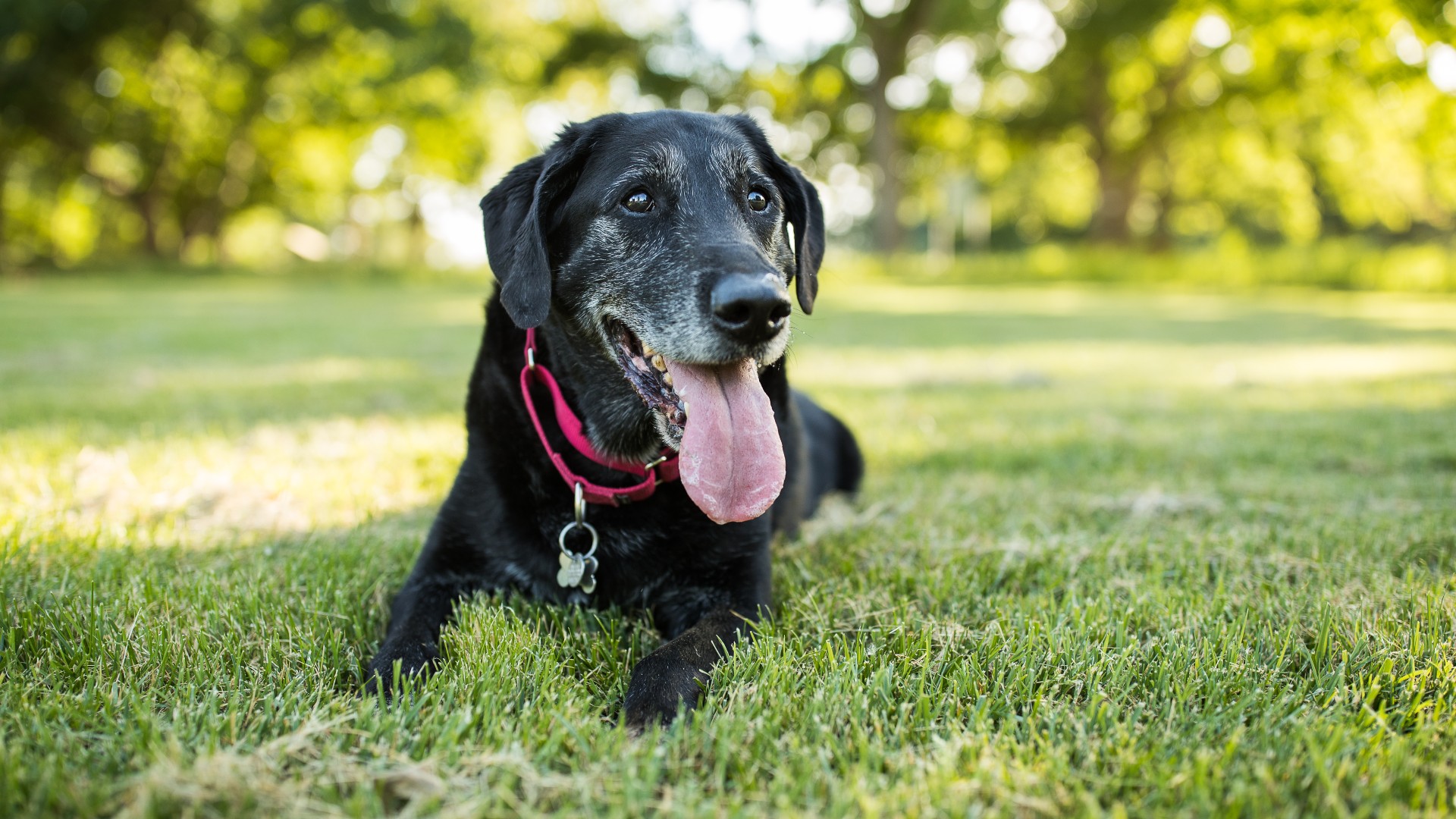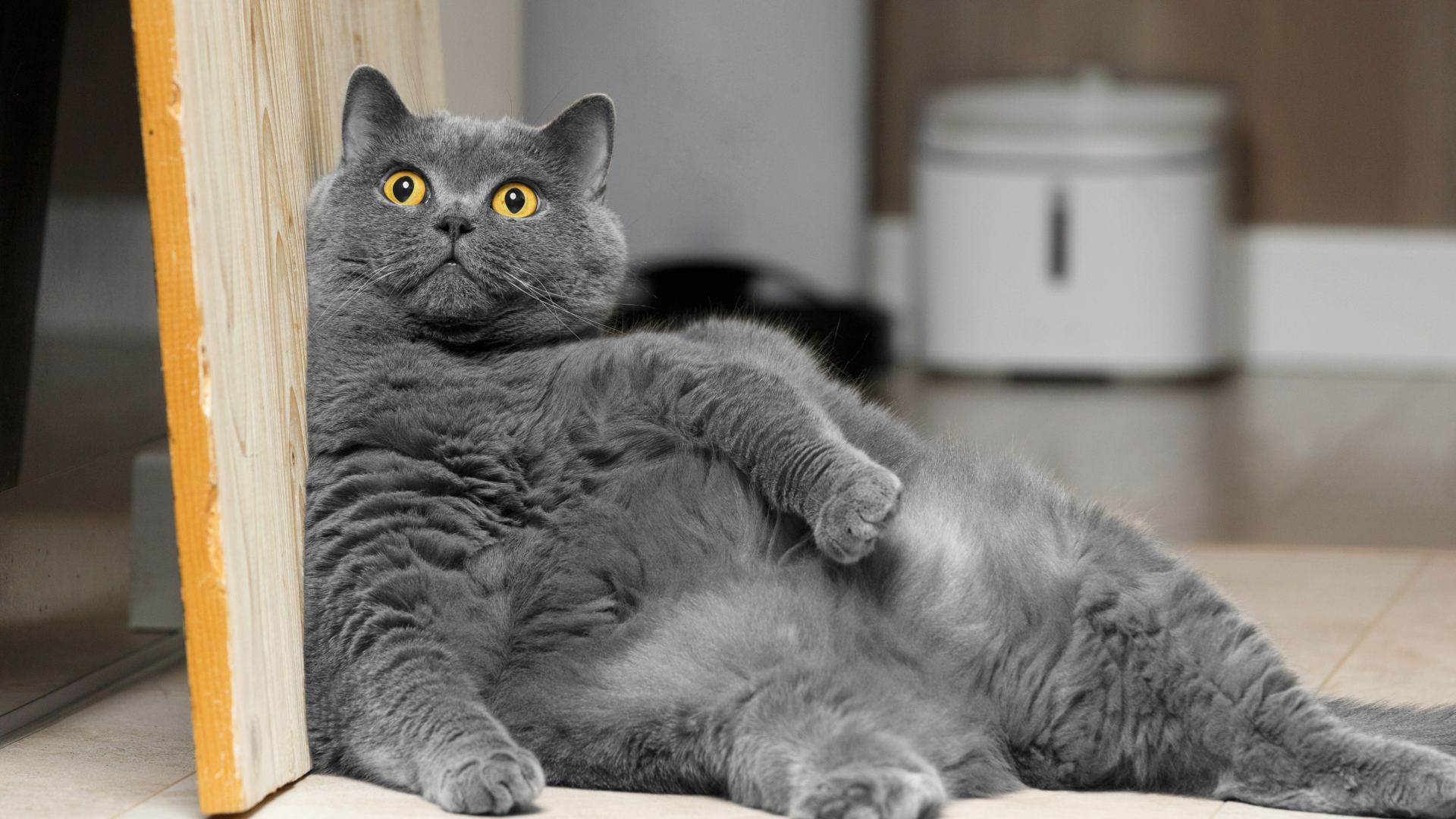Why is my dog shaking his head? Vet's guide to causes and what to do
Wondering; why is my dog shaking his head? We asked a vet what this could mean

If you’ve been asking; why is my dog shaking his head, you may also be wondering whether or not you should be concerned. While there are lots of doggy behaviors that are normal, if you see them happen more than usual, it can be worrying.
Head shaking is one such behavior that you want to keep an eye on. While a dog shaking their head when they come out of the water or while playing with the best dog toys is perfectly normal, continual shaking that's persistent and vigorous is something that requires veterinary attention.
A dog intentionally shaking their head after a lovely long nap, a fun swim or a nice stretch is a natural behavior that’s often practiced as a way of relieving some form of discomfort - such as water in the ears or an itch. Involuntary head shaking is more worrisome and will often present as frequent twitching, jerking, trembling, or bobbing.
In this article, we asked vet Dr Hannah Godfrey BVetMed MRCVS the common reasons for head shaking in dogs, from ear infections to stray grass seeds. Godfrey also explains the symptoms to look out for and when you need to see a veterinarian. Check out our guide to ‘why do dogs shake their toys?’ or read on to discover why your dog might be shaking their head…

Dr Hannah Godfrey graduated from the Royal Veterinary College in 2011 and began work straight away at a busy mixed practice. She has a passion for soft tissue surgery as well as canine and feline dentistry, having completed additional training in both areas and now works at a smaller, independent practice. Hannah lives in Wales with her partner, son, and their two cats.
Why is my dog shaking his head?
There are a few possible reasons why your dog could be shaking their head. Let’s find out what they are:
Ear infections
Dog ear infections can be caused by an overgrowth of yeasts or bacteria. As well as causing head shaking, the ears might be smelly with lots of wax or discharge. Your dog might seem sore and inside the ear might look red, inflamed, or swollen.
If the infection is deep in the canal, your dog might tilt their head to one side or seem off balance. Ear infections can be frustrating and persistent, and they're more common in dogs who swim, have allergies, or have dangly ears.
Most ear infections can be treated with antibiotic drops or gels. However, sometimes more intense treatment is required.
Allergies
Just like humans, dogs can get allergies to many things including foods, pollens, molds, and parasites. This is why some owners only buy their canines some of the best dog food for allergies.
Many allergies will often cause itchy skin and rashes, and because the ear canals are an extension of the skin, they can be affected too. If your dog is shaking their head due to allergies, there might not be any discharge or smell, but both ears may look red and sore.
You might notice your dog scratching their ears with their paws or rubbing their head against things. If allergic ear disease is left untreated, bacteria and yeast will take their opportunity and cause infection.
Although allergies can’t be cured, the symptoms can usually be controlled with specific anti-inflammatory and anti-itch medication, or by preventing exposure to the allergen.
A foreign object
If your dog has a grass seed or other foreign material in their ear, they’ll start shaking their head suddenly. This can be quite frantic and severe, and they might seem distressed.
The ear will often appear clean, and may not look inflamed, especially if the foreign material hasn’t been there long. A veterinarian can use a special instrument called an otoscope to look in your dog’s ear to check for any foreign material. However, they may need to sedate them to remove it.
Ear mites
It’s not very pleasant to think about tiny creepy crawlies hanging around in your dog’s ear. But, if they’re shaking their head a lot, it could be that they have ear mites. Ear mites are thought to be more active at night, so you might find your dog seems to suddenly become itchier once you're tucked up in bed!
Alongside head shaking, you might notice your dog's ears look dirty with a dark brown discharge. Your vet will be able to take a swab of discharge from your dog's ear and check for ear mites under the microscope. Thankfully, ear mites can be treated with various prescription medications including ear drops, tablets, and spot-ons.
Water in their ears
After swimming or getting wet, dogs shake their bodies to get excess water off their coat. But did you know if they have water in their ears, they shake their heads?
Usually, after a few moments, the head shaking will settle. However, regular swimming can make dogs more prone to ear infections, so if the head shaking continues get them checked by a vet.
Head tremors
Some conditions affecting the brain can cause head tremors, where the head wobbles back and forth quickly. It can look very similar to head shaking but is likely to be constant.
If your dog develops a head tremor you should book them an urgent appointment at the vet. This is especially important if they have seizures, are acting unwell or you notice any changes in their eye position, head position, or mobility.
What should I do if my dog keeps shaking his head?
You must seek veterinary advice if your dog starts shaking their head suddenly, or if they seem sore or in pain. If you can check the ears for nasty smells, redness, and discharge, this might give you a clue as to what could be going on. Ultimately, though, it’s likely that they’ll need veterinary treatment.
If your dog’s head shaking is mild or occasional, and the ears look normal, you can try using a cleaning solution for a few days to see if that helps. However, if the signs are worsening book an appointment at the vet clinic.

Why is my dog shaking his head with no ear infection?
If your dog’s ears look fine but they’re constantly bothering you with scratching and head shaking, it can be frustrating. You might be wondering ‘why is my dog shaking his head but his ears are clean?’
Well, there are a few causes of head shaking in dogs that don’t cause any discharge. For example, foreign material in the ear or an allergy could be making your mutt feel irritated. On the other hand, it may be a head tremor rather than head shaking, so speak to your vet.
Why is my dog shaking his head only at night?
Ear mites are most active at night, so if your dog has some unwanted guests, they might shake their head lots at night.
Although this might be annoying when you’re trying to sleep, there are very effective treatments that will clear up an ear mite infestation. A quick visit to your veterinarian will get you back on track for a good night’s sleep!
Why is my senior dog shaking his head?
If you have a golden oldie and you notice them shaking their head, it could be an ear infection, allergy, or any of the other causes.
However, it’s worth making sure that they’re head shaking rather than having a head tremor, as this can be more serious. Various neurological conditions can cause head tremors, and your veterinarian will be able to help investigate the cause.

How to clean dog ears
Cleaning your dog’s ears might be a two-person job, at least initially! It’s best to do it outside or somewhere with wipeable surfaces so that you don’t have to clean up an unpleasant mess of ear gunk afterward!
By using a cleaning solution, you can mobilize wax and discharge from deep in the ear canal, then dab it away with cotton wool or allow your dog to shake it out.
You can find out more about how to clean your dog’s ears in our vet's guide.
Summary
Many people assume that if a dog is shaking their head, it means they have an ear infection, and this is often the case. However, there are other causes of head shaking in dogs, including allergies, ear mites, and foreign objects or water in the ear.
If your dog is bothered by their ears, they might need some treatment from their vet to help resolve the issue. And it won’t just be your dog who’s more comfortable – you’ll have some peace from their constant head shaking too!
PetsRadar Newsletter
Get the best advice, tips and top tech for your beloved Pets
Dr Hannah Godfrey is a small animal vet who graduated from the Royal Veterinary College in 2011 and began work straight away at a busy mixed practice. Initially, she treated all species, but focussed on small animals from 2014. She has a passion for soft tissue surgery, ultrasound, and canine and feline dentistry, having completed additional training in these areas.
